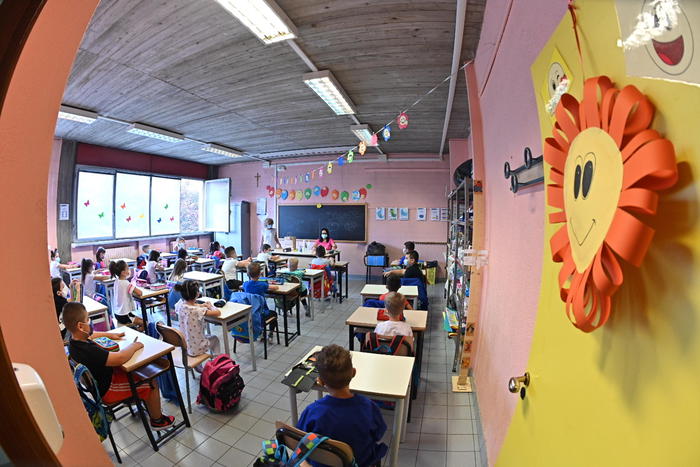Italians promote the school system by a whisker (average grade 6.3)
, pointing to obsolete curricula, inadequate technological equipment, poor teachers' motivation, school buildings, overcrowded classrooms as main problems. They consider it unable to provide adequate skills to the labor market and recognize the qualitative differences between the different areas of the country and between large cities and provinces. Furthermore, with regard to the relationship between upper secondary education and the world of work, the mismatch, in almost half of the national territory, between production specialization and technical-professional training specialization is evident.
This is what emerges from the results of
"The Italians and the school", according to the report of #FragilItalia
, the AreaStudi Legacoop observatory, born from the collaboration with IPSOS and the Study Center of Unioncamere Emilia-Romagna, which, through the opinion survey and the most recent data available, monitors the evolution of the main current social and economic phenomena of the country.
The overall average evaluation of the Italian school system stands at a value just above sufficient (grade 6.3), with variations relating to the different levels of education.
The highest grade goes to the University (6.6) closely followed by the kindergarten (6.5) and elementary schools (6.4). Nursery
schools
get a 6.2, while
the lowest grade (6) goes to middle school and high school
. The main shortcomings of the school are found in obsolete and overly theoretical curricula (52%, with peaks of 67% among the under 30s and 60% in the North East), in inadequate technological equipment (50%, and 57% in the South). and Islands), in the low motivation of teachers (50%), in school buildings (47%, with a peak of 58% in the South), in overcrowded classrooms (39%). The evaluation of the quality of the school system in relation to the different geographical and demographic contexts was clear. For 59% of the interviewees, the best schools are in the North (with peaks of 92% among those interviewed in the North East and 82% among those in the North West), while only 5% are in favor of schools in the South ( for 25% there are no differences). Furthermore,for 52%, the best schools are in large cities (with peaks of 60% among the under 30s and in the North West), while only 15% opt for the province (for 33% there are no differences).
Critical judgments also extend to
the school system's ability to provide adequate skills for the labor market
. In fact, if the percentage of those who believe they are very or fairly capable of providing adequate language skills is 44%, the figure drops drastically for green skills (23%) and digital skills (22%). In particular, for green skills (where 77% express a judgment of inadequacy), the most disappointed are the baby boomers, women and residents of the Center North (all 80%), recognizing, as main problems, the scarce interest of teachers, their poor preparation and the lack of research centers. For digital skills (78% of negative opinions), the most disappointed are young people, the working class and residents in the Center and South; the main problems indicated are the shortcomings of the laboratories, the obsolescence of teaching programs, the poor preparation of teachers.
But what are the training courses that, according to Italians, offer the greatest opportunities to enter the world of work? At the top of the preferences are
IT and telecommunications
(45%), followed by the healthcare path (29%) and the mechanics, mechatronics and energy path (26%). Lagging behind are the artistic and musical, fashion and humanistic addresses. To improve the ability to facilitate entry into the world of work, the interviewees indicate, for high school, the opportunity to activate cultural exchanges with EU schools, provide specific courses for access to work, carry out internships at businesses; for universities, internships in companies rank first, followed by the possibility of carrying out studies atabroad and from company presentations.
"During the period of the pandemic, attention turned to the education system, at all levels - comments
Mauro Lusetti, president of Legacoop
- we have all distinctly perceived both the social impact, on the lives of families and our young people, and on the economy. The urgency to safely restart this crucial sector to restart the country has almost become a slogan. However, all the problems of the Italian school cannot be reduced to the green pass yes, green pass no. Just as the time has come for the country as a whole to invest in the right direction, in overcoming long-standing delays, for the education system it means above all raising and making the quality of the system more homogeneous throughout the national territory, and strengthening and qualifying the relationship between education and work. Schools, businesses, jobs are the nervous system of our communities: and we must invest in communities ".















